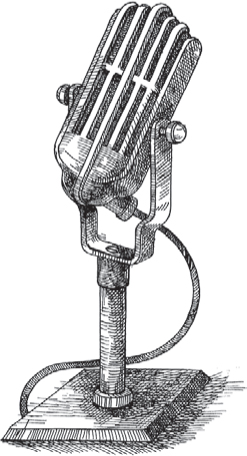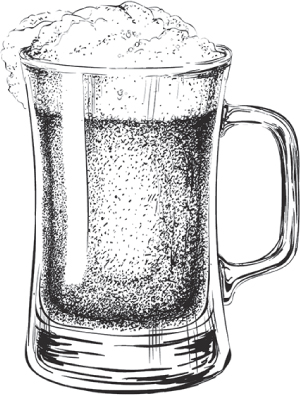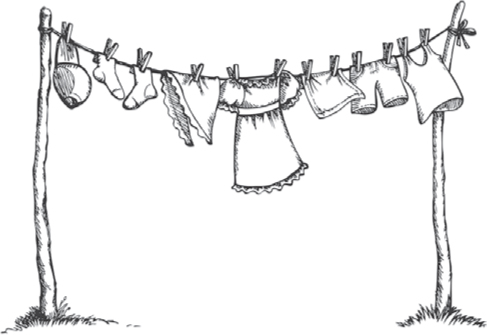![]()
MEANING: to promote something
IN CONTEXT: The radio DJ was really plugging the new song. He played it three times a day.

To plug something owes its beginnings to Captain Leonard Frank Plugge, a British businessman and politician who was prominent in the early 1900s. Plugge created a broadcasting company that bought airtime from European radio stations. He reached an agreement with the French station, Radio Normandy, to broadcast programs and transmit them to England. Plugge partially financed Radio Normandy by receiving payments to play and promote records. It was from this practice and Plugge’s name that the expression was born.
![]()
MEANING: a member of a socially prominent and wealthy family
IN CONTEXT: The Johnsons have got a lot of money and have been in the area for generations. They’re real blue bloods.
Blue blood is a translation of the Spanish sangre azul, and relates to aristocrats who lived in Castile. From their invasion in the 8th century, the Moors, who were from North Africa and had dark skin, ruled over much of Spain. Many interracial marriages took place, but the oldest and proudest families from Castile were quick to boast that they had never intermarried with the Moors or any other race. As a result, they were pure and remained extremely fair skinned, making their veins appear a profoundly blue color against their white skin. They took this to be a mark of good breeding and called themselves the sangre azul—the blue bloods. This was later used in England to describe the nobility.
![]()
MEANING: a person who is unpopular or out of favor
IN CONTEXT: Young Ronnie was caught stealing lunch money at school, and now his name is mud.
Unrelated to wet soil, your name is mud should actually read “Mudd.” In 1865, John Wilkes Booth assassinated President Abraham Lincoln by shooting him in the Ford Theater in Washington DC. Booth broke his leg while escaping and managed to ride his horse to the house of Dr. Samuel Mudd. Dr. Mudd was ignorant of the grave events that had just unfolded and provided Booth with medical assistance. Mudd learned of the shooting the next day and contacted police. He was arrested, convicted of conspiracy to murder, and sentenced to life in jail. Mudd was pardoned and released in 1869, but the public never forgave him and his name was forever tarnished.
![]()
MEANING: with extreme confidence, without regard to consequences
IN CONTEXT: Candace is as bold as brass. There were a lot of people at the beach, but she just stripped off naked and got in the water.
Bold as brass relates to a man named Brass Crosby, a London magistrate in the 1770s. At that time in England, the publication of parliamentary debates was considered a breach of privilege and was illegal. When two London printers published reports on parliament, they were arrested and brought before the court. Disagreeing with the law, Crosby freed them. As a result, he was then committed to jail for treason. By the time of his release, he had become famous because of his bold stand of defiance.
![]()
MEANING: a man who secretly observes naked women or sexual acts for his own gratification
IN CONTEXT: There was a furor at the gym when a peeping Tom was caught outside the ladies’ locker room window.

Peeping Tom has its origins with the story of Lady Godiva. In the 11th century, Godiva was married to Leofric, the Earl of Mercia, who owned large landholdings. He imposed heavy taxes on the less wealthy, which resulted in public outrage. Godiva disagreed with the taxes and implored her husband to reduce them. Thinking she would never do it, Leofric agreed to lower the taxes on the condition that Godiva rode a horse naked through the streets of Coventry in England. She decided to take up the challenge, and as a mark of respect the townsfolk agreed to stay indoors, close their shutters, and not watch the highly publicized spectacle. Everyone kept their word except for the tailor in the town, Tom. Tom was unable to resist a glimpse of the nubile Godiva and peeped through his shutters.
![]()
MEANING: an authentic or genuine person or thing; not a substitute
IN CONTEXT: The sculpture was not a reproduction. It was the real McCoy.
The real McCoy is an expression with a number of potential origins which have often been hotly contested. The most cogent theory is that it derives from “Kid McCoy,” the name used by Norman Selby, the American welterweight boxer who dominated the sport and was at the height of his fame in the 1890s. McCoy had many imitators who would use his name in an attempt to capitalize on his popularity. It became so commonplace for Kid McCoy imposters at fairground boxing rings around the country to challenge the locals for money, that few people ever believed it was actually him. Years after he had retired, McCoy was in a bar when he was challenged by a drunk who was much larger he. The drunk’s friends warned him not to fight McCoy, but the drunk didn’t believe it was really him. Provoked to his limit, McCoy knocked the man out with a single blow. When he came to, the drunk admitted, “You’re right, he is the real McCoy.”
![]()
MEANING: an enjoyable holiday destination or holiday home; an imaginary place of nirvana
IN CONTEXT: We had saved for years and could finally afford a place in the sun.
A place in the sun has its unexpected origins in Europe’s colonization of “uncivilized continents” in the 19th century. Known as the “Scramble for Africa,” a number of European countries sought to expand their empire, and Germany was no exception. Kaiser Wilhelm II’s foreign policy called Weltpolitik aimed to transform Germany into a global power through the development of a large navy and the acquisition of overseas colonies. The policy was debated in the Reichstag on December 6, 1897, and in that seminal discussion, German Foreign Secretary Bernhard von Bulow said, “We wish to throw no one into the shade, but we demand our own place in the sun.” The expression quickly grew from there to mean what it does today.
![]()
MEANING: a fabricated or exaggerated story
IN CONTEXT: Michelle told us she’d studied for thirty hours straight, but it was obviously a cock and bull story.

Cock and bull story has its origins with the town of Stony Stratford in Buckinghamshire, England. In the height of the coach-travel era of the 18th and 19th centuries, Stony Stratford was an important stopping-off point for passenger and mail coaches traveling between London and the North. The people who traveled on the coaches were a great source of news from all parts of England and this news was discussed at the town’s two main inns, The Cock and The Bull. These two inns quickly developed a rivalry to see which could furnish the most outlandish travelers’ tales. Exaggeration was rife, and the stories soon became known as cock and bull stories.
![]()
MEANING: to tidy up and make stylish
IN CONTEXT: He was having guests to his house so he decided to spruce it up a little.
To spruce up has curious origins. “Spruce” is a 14th-century word that is a variant of “Pruce,” which was a shortened version of the name Prussia. Prussia was a state in northern Europe that met its end shortly after World War II. During its early days, things imported from Prussia were referred to as spruce and considered high quality. Spruce leather was of a particularly top grade and was often said to be “smart.” This aided the expression’s transformation to its current meaning by the 16th century.
![]()
MEANING: a brief period of celebrity or media publicity
IN CONTEXT: Joelle made a bold announcement at the directors’ meeting and got her fifteen minutes of fame.
The phrase fifteen minutes of fame was first coined by the American artist Andy Warhol. In the catalogue for a 1968 exhibition of his work at the Moderna Museet gallery in Stockholm, Sweden, he included the words, “In the future, everybody will be world famous for fifteen minutes.” While Warhol is widely credited with the expression, a photographer named Nat Finkelstein claims he first said it when working with the artist in 1966. A crowd had gathered and was trying to get into the photos being taken of Warhol, who remarked that everybody wants to be famous. “Yeah,” Finkelstein replied, “for about fifteen minutes, Andy.” However, Warhol maintained that he was responsible for the phrase and in 1979 he repeated it, claiming that the line had a sound basis.
![]()
MEANING: a wise guy or know-it-all
IN CONTEXT: Sam thought he knew everything and he was always ready with a witty comment. He was a real smart Alec.
Smart Alec dates back to the 1840s in New York to a man named Alec Hoag. Hoag was a fraudster and a con man. Working in cahoots with his wife Miranda, he would have her pose as a prostitute to lure in unwary customers. Once the customer was in a compromising situation with his wife, Hoag would sneak in and steal anything of value from the victim. Hoag was caught doing this on a number of occasions, but escaped arrest by bribing police officers. But Hoag pushed his luck too far in one instance, and decided not to pay the police their cut. He was sentenced to jail, and the New York police began calling any criminal who was a little too clever for his own good a Smart Alec.
![]()
MEANING: a brash and carefree young man
IN CONTEXT: I don’t want you going out with him. He’s a bad influence, a real Jack the lad.
The expression Jack the Lad owes its beginnings to Jack Sheppard, a twenty-two year old man born in London in 1702. Sheppard was a notorious and reckless thief whose antics made him a household name throughout England. He was caught and imprisoned five times, escaping four times through ingenious means—he sawed through the roof of his cell on one occasion and on another, he picked the locks of his shackles using his finger nail. Jack became a popular hero who inspired a number of songs and plays. During his final stay in jail in 1724, he was guarded day and night and then hanged at Tyburn in front of a crowd of over 200,000.
![]()
MEANING: engage in wild or erratic behavior
IN CONTEXT: The men were drunk and they started smashing bottles and really running amok.
Run amok dates from 16th-century Malaysia. The Amuco were a band of Javanese and Malay warriors. They believed that warriors who died in victorious battles became favorites with the gods, while warriors that failed were dishonored and killed. This led the men to fight with extreme frenzy and violence. Their seeming desire for indiscriminate and unrestrained violence fascinated the European explorers of the 18th century. Captain James Cook detailed an account of the Amuco in his 1772 Voyages when he wrote, “To run amock is to get drunk with opium…to sally forth from the house, kill the person or persons supposed to have injured the Amock, and any other person that attempts to impede his passage.” Amok officially became a psychiatric medical condition in 1849 and is still considered one today.
Air Your Dirty Laundry in Public
![]()
MEANING: talk to others in public about private matters
IN CONTEXT: I was taught not to air my dirty laundry in public, so I only discuss private things at home.

Sometimes used with “wash” instead of “air” and “linen” instead of “laundry,” air your dirty laundry in public owes its beginnings to Napoleon Bonaparte. Napoleon was exiled to the island of Elba in 1814 after he was forced to abdicate from the French throne. He was made emperor of the island and allowed an army of 700 men. Despite the island being surrounded by the British navy, Napoleon managed to escape on a boat after less than a year there. Back in France he was asked about his experiences in exile. “It is at home and not in public that one washes one’s dirty linen,” he replied.
![]()
MEANING: a signature
IN CONTEXT: If you put your John Hancock here, the deal will be formal.
John Hancock was an American merchant and statesman who lived from 1737 to 1793. He was the Governor of Massachusetts and president of the Second Continental Congress. Hancock was one of the men to sign the American Declaration of Independence in 1776. His flamboyant signature is the largest on the document and is nearly five inches long. Because of that, his name became synonymous for any signature. It is told that when he signed the document he said, “There—I guess King George or John Bull will be able to read that without his spectacles.”
![]()
MEANING: crazy
IN CONTEXT: By the end of a weekend drinking in the sun, we had all gone barking mad.
Barking mad does not relate to the obvious analogy of comparing an insane person to a crazed dog. It is often disputed, but its likely origins actually lie in the east London suburban town of Barking. In medieval times, Barking was home to a lunatic asylum. The asylum was notorious for its particularly deranged inhabitants. It wasn’t long before the expression barking mad was used throughout England to refer to someone who would not be out of place there.
![]()
MEANING: a nosy, prying person
IN CONTEXT: We tried to keep our voices down because Mrs. Archer next door was a real nosy parker and loved any form of gossip.
Nosy parker began in the 16th century and is named after Matthew Parker, the Archbishop of Canterbury who served under Elizabeth I. Parker was a forerunner in church reform and sought to obtain a detailed account of the qualifications and activities of the clergy. To this end, he ordered a number of inquiries, which were met with much derision from those answerable to him. This reputation earned him the nickname “Nosy,” because it was said that he was always sticking his nose in and trying to sniff things out. Nosy parker had become a popular expression by the late 19th century.
![]()
MEANING: a drug slipped into someone’s drink surreptitiously
IN CONTEXT: I’d only had two drinks but I was almost on the floor. Someone must have slipped me a Mickey Finn.
Often referred to as “slipping someone a Mickey,” the expression Mickey Finn originated on South State Street, Chicago, in the late 19th century. Mickey Finn was the manager of the Palm Garden Restaurant and the Lone Star Saloon. Finn was an unscrupulous low-life and was known to lace his customer’s drinks with knock-out drops (containing chloral hydrate), causing them to become incapacitated so he could then rob them. The authorities got wind of Finn’s illicit practices. Finn escaped jail, but in 1903 the bars were closed down. One newspaper headline described the event: “Mickey Finn’s alleged ‘knock-out drops’ put him out of business.”